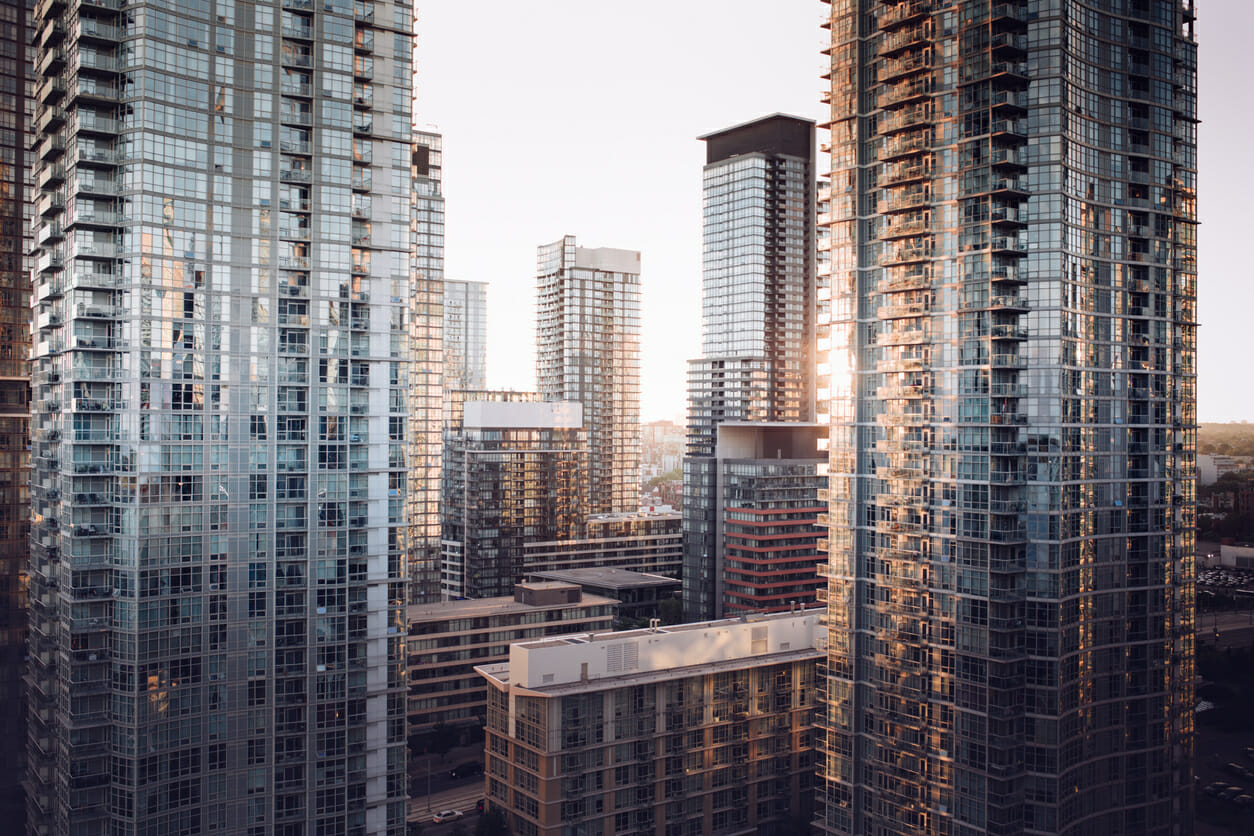Insurance isn’t exactly the most exciting condo issue. While few boards look forward to finding an appropriate policy, it’s always better to have it and not need it than need it and not have it.
Condo insurance (also known as a master policy) protects the building in the event of an accident or incident. Unit owners are automatically included as policyholders within the condo association.
It would be nice if there were two or three different policies to choose from, but there are dozens of options out there, and boards have to do their research before deciding on their building insurance. Working with a trustworthy insurance broker or agent who understands condo insurance is key. A knowledgeable agent will make sure your corporation is appropriately covered, and is complying with state or provincial laws, and the condo’s bylaws and declarations. If your building has hired a property management company, the manager should be able to guide you in choosing an experienced agent.
What does insurance cover?
A master insurance policy covers the building and the areas used by unit owners. This includes parks and pools belonging to the association, the gym, party room, and elevators. Parking lots, walkways, halls, stairs, etc., are also included.
Depending on the building, unit owners may be partially responsible for certain shared spaces, meaning if there is severe damage to the pool, the association may hold unit owners accountable for the deductible.
An insurance policy for a condo should also include:
General liability coverage. If someone is injured while in a common area maintained by the association, this policy covers the medical and legal costs associated with it. For example, someone might slip and fall while doing repairs on the property. Without liability coverage, the association would have to use its own money to cover expenses.
Directors and officers liability coverage. This type of insurance is very important because it protects board members, their spouses, committee members, volunteers, the property manager and property management company, and building staff from potential lawsuits or allegations.
Boards should note that D&O insurance works differently from many other types of coverage. Instead of being an occurrence policy, meaning the insurance covers incidents that occur while the policy is in effect, a D&O policy is a claims-made policy. This means the insurance provides coverage as long as it is in effect when the claim is made. D&Os claims must be made as soon as possible to reduce the possibility of the claims being excluded.
Fidelity liability. This covers the costs of embezzlement or theft of money from the association by a board member.
Property damage. If a disaster or crime, such as fire or theft, causes damage to the common areas, this insurance would pay for the repair or replacement.
Less is not more when it comes to property coverage
All too often, condo boards mistakenly believe that their umbrella policy will kick in when they’ve exhausted the limits of their property insurance. As a result, they may agree to reduce the amount of coverage they have under the property insurance policy, assuming they can save the association money without taking unnecessary risks. But, umbrella policies only provide extra liability coverage when a general liability policy has been exhausted. It does not provide additional property coverage.
Deductibles
A deductible is the amount that the policyholder must pay for in the event of a claim. Deductibles can create a lot of anger and confusion; you may expect insurance to cover everything, but that’s rarely the case. Depending on the condo’s bylaws, and who is at fault for the damage, owners may have to pay the deductible. Some condo associations collect money for insurance deductibles as part of their regular fees. Others may have a slush fund that can be used to cover the cost of deductibles. This may not be practical for every condo, but having such a fund in place means owners aren’t suddenly burdened with exuberant deductible fees when the unexpected occurs.
Costs
Insurance premiums are paid for by the association, using a portion of the condo fees that owners are required to pay.
Revisiting the insurance policy
It is highly recommended that the board perform an annual review of the insurance policy. This allows them to verify that the coverage they have is still appropriate, considering any changes made to the property or the bylaws. The association should also forward new bylaw changes to the insurance broker; failure to do so may negatively impact the association’s coverage.
Is there anything a master policy doesn’t cover?
Generally speaking, any of the things inside residential units (computers, clothes, furniture) are not covered by the condo’s master policy. In some cases, the master policy will cover the structure of condo units, including the walls and the floors. But, residents should assume that anything inside of their walls is their responsibility. Condos will choose one of two policies, and their decision may encourage residents to purchase a more comprehensive policy for themselves.
Bare walls-in policy
A bare walls-in policy limits its coverage to the structure of the condo. As such, roofing, wiring, piping, framing, and drywall are covered. However, appliances and installations are not part of the policy.
All-in policy
An all-in policy includes coverage for everything included in the bare walls-in policy, with the addition of installation, fixtures, and possibly built-in appliances that came with the unit.
Owners should be made aware of the details of the condo’s master insurance policy so that they can make an informed decision about how much coverage they will need for their own condo insurance. That way, they won’t end up paying for items that the association has already covered.
Owners should be provided with a certificate of insurance after they have closed the sale on their unit. The certificate shows owners the policies that are in effect.
Condo insurance for owners
Condo owners and renters need their own insurance to help protect their unit and their personal property. Condo insurance is used when something in the owner’s unit is stolen or damaged. It may cover damage that occurred due to:
- fire and smoke
- lightning
- windstorms and hail
- an explosion
- vandalism
- damage from an aircraft or vehicle
- ice, snow, or sleet
- water damage
Owners may also seek a policy that includes:
Personal liability coverage. If someone is accidentally injured in your unit and you are at fault, this coverage may help you pay for legal expenses or medical costs.
Guest medical coverage. If someone is injured while in your unit, guest medical coverage may help pay for related medical expenses – even if you are not at fault.
Building property protection. This type of coverage helps pay for repairs to the walls of your condo unit and its interior.
Personal property coverage. Items such as electronics, appliances, furniture and clothing are typically included under personal property coverage. If these items are stolen or destroyed in a covered claim, this insurance coverage may help pay to repair or replace them.
Lockers
If you have personal belongings stored inside a condo locker, and the locker is located inside of your condo unit, your insurance policy may cover damages. If the locker is located outside of your unit or outside of the condo (for example, in the parking garage), you may need to find a special coverage option to protect the items stored here.
Conclusion
Every condo association should possess a comprehensive, up-to-date insurance policy. There are plenty of variations in insurance policies, allowing condos to find the policy that works best for them. That being said, so much choice can create confusion as well. Boards will benefit from collaborating with an insurance broker or agent who can help them find the best condo insurance for their community.



